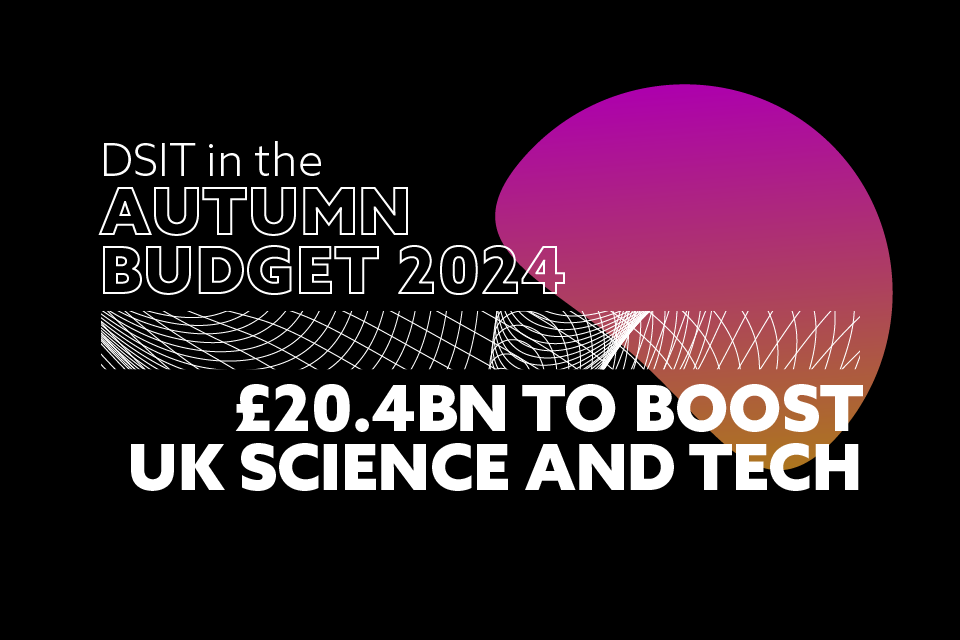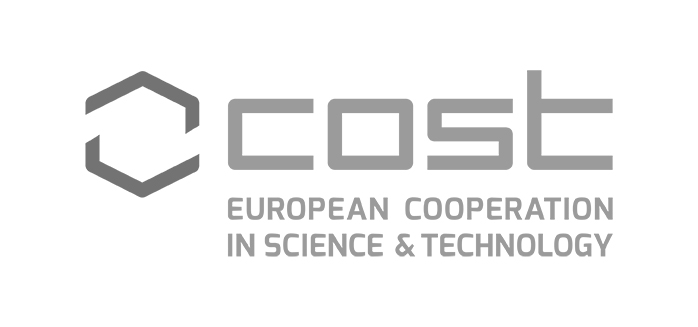Proposal preparation grants for 2024 and 2025 calls
Innovate UK and the British Academy have funding schemes open for Horizon Europe Pump Priming Grants, to enable SMEs, research organisations and universities in the UK build partnerships and develop proposals. If you are planning a submission to a 2024 or 2025 Horizon Europe call, one of these schemes may support the development of your proposal.
Innovate UK Horizon Europe Pump Priming
UK SMEs can apply for a grant of up to £5000 (Ex-VAT) to help them in their preparation for submitting a Horizon Europe proposal for a collaborative opportunity. This could be used to fund attendance at networking events, to contribute to the cost of joining associations and other activities that are solely directed at future Horizon Europe participation. Note that if you have already received an Innovate UK Pump Priming grant you will not be able to apply for another in this round. The closing date for applications is 17th January 2025 and the final date on which claims can be made for payment is 17th February 2025.
British Academy Horizon Europe Pump Priming
Principal Investigators (PIs) at universities and research institutions can apply for a grant of up to £10,000 to help them in their preparations for submitting a Horizon Europe proposal for Pillar 2 of Horizon Europe – Global Challenges and European Industrial Competitiveness. All of the details such as eligibility, closing dates, etc., are published on the British Academy website and any questions about this scheme should be addressed directly to them.
Autumn Budget: Record £20.4bn R&D investment
In the 2024 Autumn Budget, the UK government announced a landmark investment of £20.4 billion into research and development (R&D) to boost economic growth, tackle national challenges, and establish the UK as a global leader in innovation. This substantial funding demonstrates a commitment to addressing critical areas like healthcare, sustainable energy, digital infrastructure, and technological advancements, aiming to achieve the UK’s “five national missions.” Here’s an overview of the key allocations and expected impacts.
Horizon Europe and Core R&D Budget
A significant portion of the budget secures the UK's full participation in Horizon Europe, the EU's primary research and innovation program. By committing to this association, UK scientists and innovators gain access to an €95 billion fund for collaborative projects, positioning the UK at the heart of global scientific advancements. Additionally, the Department for Science, Innovation, and Technology (DSIT) received a budget increase to £13.9 billion, while core research funding rose to a record £6.1 billion. These increases aim to bolster the UK’s research base and foster innovation across various sectors.
Life Sciences Innovative Manufacturing Fund
The government unveiled a £520 million Life Sciences Innovative Manufacturing Fund (LSIMF) to enhance the UK's capacity for manufacturing critical medical supplies. Starting with an initial £70 million in grants, the LSIMF is expected to unlock up to £1.8 billion in private investment, creating thousands of high-skilled jobs and supporting the healthcare sector’s resilience. This fund aims to strengthen the NHS by ensuring quicker access to innovative treatments, contributing to the UK’s preparedness for future health emergencies.
R&D Missions Programme
A new R&D Missions Programme will initially receive £25 million to address specific national challenges, such as healthcare advancements and clean energy transition. This initiative will foster partnerships with private and third-sector organisations to convert scientific discoveries into practical solutions, enhancing the quality of life and driving forward the UK’s sustainability goals.
Proof of Concept Fund for University Spinouts
To foster innovation from UK universities, the government is investing £40 million over five years in a Proof of Concept Fund. This fund will help researchers transform breakthrough ideas into viable businesses, creating job opportunities and stimulating economic growth. Success stories like Pragmatic Semiconductor and Oxford Nanopore underscore the potential of university spinouts to drive growth, with both companies raising significant investment and creating high-skilled employment in critical sectors.
Innovation Accelerators and Made Smarter Innovation Programs
The budget extends funding for Innovation Accelerators, supporting regional innovation in areas like Glasgow, Greater Manchester, and the West Midlands. These accelerators focus on developing high-potential local industries, with projects like Chemify and the Biochar Cleantech Accelerator attracting millions in private investment. Additionally, the Made Smarter Innovation program will receive £37 million to encourage manufacturers to integrate digital technologies, enhancing productivity and sustainability across UK industries.
Project Gigabit and Shared Rural Network
To improve connectivity, the government will invest £500 million in Project Gigabit and the Shared Rural Network. This funding supports the expansion of high-speed digital infrastructure to underserved regions, with the goal of achieving full gigabit coverage by 2030. Reliable internet access is crucial for businesses and communities across the UK, ensuring equal access to digital resources and fostering regional economic development.
Shared Services Strategy
An £80 million allocation will modernise shared services across nine government departments, streamlining operations for greater efficiency. By updating these systems, the government aims to cut costs and improve services, providing better value for taxpayers.
Barriers to Transformative Technology Adoption
To identify obstacles in adopting transformative technologies, a review led by Chief Scientific Adviser Professor Dame Angela McLean and National Technology Adviser Dr. Dave Smith will assess high-growth sectors. This review seeks to enhance productivity and drive innovation in alignment with the government’s Industrial Strategy, ensuring the UK remains competitive in emerging tech fields.
Reaction from the Scientific Community
This record R&D investment has been met with widespread approval from the scientific community. Royal Society President Sir Adrian Smith commended the government’s recognition of research as a “crucial national asset,” emphasising that protecting the science budget is essential for long-term economic growth. He noted the importance of supporting net-zero initiatives and promoting innovation in sectors like AI to maximise the economic benefits of scientific advancements.
Developing AI Competencies in Key Sectors
Innovate UK has announced a £2 million competition under its BridgeAI programme aimed at driving innovation in artificial intelligence (AI) across essential sectors in the UK. This initiative seeks to enhance AI competency in the fields of construction, transport and logistics, creative industries, agriculture, and food processing. The competition focuses on fostering responsible and ethical AI-based learning solutions that support upskilling, reskilling, and competency development within these sectors. Here, we explore the programme’s objectives, requirements, and what applicants need to keep in mind to qualify for funding. The competition opens on 11th November with the deadline set at 11am on 29th January 2025.
Objectives of the BridgeAI Programme
The primary goal of the BridgeAI competition is to accelerate the development of AI competencies tailored to specific industry needs. The competition is designed to encourage responsible and ethical approaches to AI education, ensuring that new technologies are not only effective but also aligned with industry standards and values. Proposals submitted to the competition should address how they will meet the following key objectives:
- Accelerating AI Competency Development: Projects should demonstrate how their proposed solutions will enhance AI skills relevant to the sector in a responsible and ethical manner.
- Supporting High-Quality Education: By leveraging evidence-based teaching and learning methodologies, applicants are expected to promote effective learning practices that are aligned with industry standards.
- Aligning with Competency Frameworks: The BridgeAI programme highlights the importance of aligning learning content with both sector-specific standards and the AI Skills for Business Competency Framework to ensure the potential for future accreditation.
- Upskilling and Reskilling the Workforce: Each solution must address the need for upskilling and reskilling existing professionals within the sectors, allowing them to stay current with the latest AI developments.
- Piloting with End Users: Applicants must have a clear plan for piloting their solutions with real-world end users, providing a tangible demonstration of the project’s applicability and effectiveness.
Funding and Project Scope
To be eligible, projects must meet several essential requirements outlined by Innovate UK:
- Eligible Costs and Compliance: The competition offers grants ranging between £50,000 and £100,000 and only eligible project costs should be included in the application.
- Project Duration and Timeline: Projects should have a duration of 6 to 10 months, starting no later than 1st June 2025, and concluding by 31st March 2026.
- Location of Work: All project activities must be carried out in the UK, with the aim to exploit results within the country as well.
- Alignment with Learning Personas: The project must focus on at least one learner type outlined in the AI Skills for Business Competency Framework, including AI Workers, AI Professionals, or AI Leaders, ensuring that solutions are adapted to different levels of experience within the AI landscape.
- Commitment to Diversity and Inclusion: The programme places significant emphasis on promoting equality, diversity, and inclusion, encouraging applicants to design personalised learning journeys that are accessible and fair.
Organisational Requirements
Applicants must be UK-registered businesses of any size, and to be eligible for funding, projects must involve at least one UK-registered micro, small, or medium-sized enterprise (SME). Innovate UK also welcomes collaborations with a variety of UK-registered entities, including academic institutions, charities, non-profits, public sector organisations, and research and technology organizations (RTOs).
In collaborative projects, the lead organization must invite other partners to join the project through the Innovation Funding Service (IFS) platform, where partners will enter their project costs and respond to questions on project impact. Both the lead organisation and any collaborators seeking funding must complete these steps to qualify for the competition.
Portfolio Approach
Innovate UK’s portfolio approach seeks to fund a diverse range of projects, ensuring that the benefits of AI competency development are distributed across various regions and industries. This approach enables Innovate UK to maximise the impact of the BridgeAI programme by investing in innovative solutions across different sectors, meeting the unique needs of each one. Projects that align with the specific themes of AI competency development in key sectors, support diverse learning personas, and uphold inclusive values are particularly valued under this approach.
Specific Themes for Applicants
To align with Innovate UK’s vision for the BridgeAI programme, applicants should ensure their projects address specific themes relevant to the competition:
- Industry-Specific AI Competency Development: Each project must aim to develop AI competencies in at least one of the programme’s target sectors, such as construction, transport and logistics, creative industries, agriculture, or food processing.
- Learner Personas: By focusing on different learner personas within the AI Skills for Business Competency Framework, including AI Workers, Professionals, and Leaders, projects should offer personalised learning pathways that cater to diverse levels of expertise and roles in the industry.
- Promoting Diversity and Inclusion: The competition strongly encourages projects that consider equality, diversity, and inclusion in their learning approaches, thereby ensuring AI competency development is accessible to a broad range of individuals.
Application Tips
Given the competitive nature of this funding opportunity, applicants are encouraged to focus on building a strong case for how their project will accelerate sector-relevant AI competency development while meeting all the programme’s ethical and responsible AI standards. Highlighting clear, evidence-based educational methods, demonstrating an understanding of industry standards, and showing an actionable plan for piloting with end users will increase the chances of selection.
You can read the full competition details here.
Mindset extended reality (XR): Digital therapeutics for mental health
Innovate UK has announced a funding opportunity aimed at developing digital therapeutics using extended reality (XR) for mental health. The competition, opening on 28th October 2024, will invest up to £3.7 million in R&D projects that offer innovative mental healthcare solutions. Eligible projects should have costs between £200,000 and £300,000 and last 12 to 18 months. XR solutions should focus on addressing moderate to severe mental health conditions and aim for large-scale adoption within the UK's healthcare system. The deadline for applications is 15th January 2025.
Addressing Mental Health with Extended Reality
Mental health disorders affect millions of people worldwide, and the COVID-19 pandemic has only exacerbated these challenges. The rise in anxiety, depression, and other conditions has spurred the demand for effective mental health treatments that can be scaled and made widely accessible. This funding opportunity encourages the development of XR solutions aimed at treating moderate to severe mental health conditions. XR technologies include virtual reality (VR), augmented reality (AR), and mixed reality (MR), all of which have been used in therapeutic settings for conditions such as post-traumatic stress disorder (PTSD), anxiety, and depression.
By combining these immersive technologies with evidence-based therapeutic approaches, XR solutions can offer patients an engaging and personalised experience. Unlike traditional talk therapies, XR can simulate environments that help patients confront and manage their symptoms in real-time. For instance, VR has been used to treat phobias by gradually exposing individuals to their fears in a controlled and safe environment. Similarly, AR can help users visualise coping strategies or engage with therapeutic content in their daily surroundings.
The Scope of the Competition
The competition invites proposals that will create new, innovative XR-based digital therapeutics. Projects must focus on mental health issues such as depression, anxiety, PTSD, or other moderate to severe conditions. These solutions should not just focus on short-term relief but also demonstrate a potential for long-term, sustainable impact on the UK’s healthcare system.
Innovate UK emphasises the need for solutions that can be integrated into existing healthcare frameworks, allowing for broad scalability and accessibility. This means that proposed XR therapeutics should be designed with the intention of large-scale adoption within the UK’s mental health services. Innovators are encouraged to work closely with healthcare professionals, patients, and mental health experts to ensure that their solutions are evidence-based, patient-centred, and aligned with the needs of the healthcare system.
Eligibility Criteria and Project Requirements
The competition is open to UK-based organisations, including small and medium-sized enterprises (SMEs), large companies, universities, and research and technology organisations. Collaborations between industry and academia are encouraged to foster multidisciplinary approaches, which are often necessary when developing complex digital health solutions. However, lead applicants must demonstrate their ability to lead the development and commercialisation of the proposed XR therapeutic.
Projects should have total costs ranging between £200,000 and £300,000 and are expected to last between 12 and 18 months. This funding can be used to cover a variety of activities, including research and development, clinical trials, user testing, and the creation of XR content. Applicants must show how their solution will meet a significant clinical need, how it will be tested for efficacy and safety, and how it will be positioned for real-world implementation.
Importance of Multidisciplinary Collaboration
Developing effective digital therapeutics requires a multidisciplinary approach, drawing on expertise in healthcare, psychology, technology, and design. The intersection of these fields is crucial for creating XR experiences that are not only technologically sound but also therapeutically effective. For example, clinicians can ensure that the therapeutic content is grounded in psychological science, while XR developers and designers can create immersive and engaging user experiences.
Innovate UK recognises the importance of collaboration between these diverse fields and encourages applicants to assemble teams that reflect this. This includes partnerships between the healthcare sector and technology companies, as well as collaboration with patients and mental health advocates to ensure that the solutions are patient centric. Co-creation with end-users can also help ensure that the final product is user-friendly and meets the needs of those who will benefit from the technology.
Potential Impact on the Healthcare System
The UK’s healthcare system, like many others around the world, is under increasing strain due to rising demand for mental health services. Traditional therapeutic models, which often rely on face-to-face sessions with trained professionals, are resource-intensive and difficult to scale. Digital therapeutics, particularly those that leverage XR, have the potential to fill this gap by offering scalable, accessible, and effective treatments that complement existing care pathways.
XR-based therapeutics can be delivered remotely, allowing patients to engage in therapy from their homes, which can be especially beneficial for those in rural or underserved areas. Moreover, the immersive nature of XR can enhance engagement and adherence to therapy, which are often major barriers to treatment success in mental health. By offering engaging and interactive experiences, XR therapeutics may be more likely to encourage patients to complete their treatment plans and achieve better outcomes.
In addition to benefiting patients, XR solutions have the potential to reduce the burden on healthcare providers. By automating some aspects of treatment or offering supplementary therapeutic content, these solutions could free up clinicians’ time to focus on more complex cases. Furthermore, the data collected through digital therapeutics can provide valuable insights into patient progress, helping clinicians tailor treatments to individual needs.
For more information on how to apply, visit the competition page.
Media Cymru's Scale Up Round 2 Funding Competition
The media landscape in Wales is poised for transformational change, and Media Cymru, a dynamic consortium of 22 partner organisations led by Cardiff University, is at the heart of this shift. As part of its ambitious five-year programme, Media Cymru has launched the Scale Up Round 2 funding competition, with support from Innovate UK and the UKRI Strength in Places Fund. With up to £700,000 available to be invested in research and development (R&D) projects, this competition is designed to place the Cardiff Capital Region firmly on the global media stage.
The Vision Behind Media Cymru
Media Cymru is committed to turning the Cardiff Capital Region into a global hub for media production and innovation. However, this transformation is not merely about boosting production capacity. The initiative prioritizes green and fair economic growth, which means creating a sustainable and inclusive media ecosystem where innovation is at the forefront.
The Media Cymru programme revolves around four strategic pillars:
- Green – Reducing the environmental impact of the media sector.
- Fair – Building a diverse, equal, and inclusive sector.
- Global – Expanding international collaborations and partnerships.
- Growth – Fostering economic growth and productivity through R&D and innovation.
Each project funded through this competition is expected to align with at least one of these pillars, ensuring that funded innovations contribute not only to the advancement of the Welsh media industry but also to the wider societal and environmental goals.
Scale Up Round 2: What’s the Opportunity?
Media Cymru: Scale Up Round 2 offers Welsh media companies the chance to secure significant funding for projects with the potential to scale, innovate, and compete on a global stage. The competition will invest in innovation-driven products, services, and experiences that have the ability to transform the media landscape, both locally and internationally.
Key Details:
- Grant funding range: £100,000 to £250,000 per project.
- Project duration: Up to 12 months.
- Deadline: The competition closes at 11am UK time on the 4th December 2024.
- Project start date: Must not begin before 1st April 2025 and should conclude by 30th April 2026.
- Eligibility criteria: Projects must focus on the media sector and demonstrate a tangible economic benefit to the Cardiff Capital Region.
Importantly, applicants must be prepared for a competitive process, as the funding limit means not all high-scoring proposals will necessarily be funded.
What Makes a Winning Proposal?
Success in this competition hinges on a company’s ability to present a project that meets the specific requirements of the competition while standing out in terms of innovation and scalability.
Here’s what the competition is looking for in a winning proposal:
- Innovation-Driven Solutions: Your project must aim to solve a key challenge or seize an opportunity within the Welsh media industry. Whether it’s improving media production processes, creating innovative content platforms, or addressing challenges related to digital consumption, the project should be original and impactful.
- Proven Feasibility: Ideas are not enough on their own. You need to demonstrate the feasibility of your innovation. This means that the technology or solution you propose must have a sound basis for development and implementation, supported by clear evidence or research.
- Economic Impact: A core goal of this competition is to drive economic growth in the Cardiff Capital Region. Successful applicants will need to demonstrate how their innovation will contribute to the local economy by creating jobs, increasing productivity, or attracting additional investment.
- Rapid Commercialisation: The competition is not just about ideas; it’s about turning those ideas into tangible products and services that can be rapidly commercialised. Your proposal should include a clear commercialisation strategy, detailing how your innovation will be brought to market quickly and effectively after the project’s completion.
- Knowledge Sharing: Collaboration and knowledge-sharing are fundamental to Media Cymru’s vision. Applicants are expected to actively share knowledge and project outputs with the broader media community, fostering a culture of innovation across the region.
- Alignment with Strategic Pillars: Every project must align with one or more of Media Cymru’s strategic pillars (Green, Fair, Global, Growth). This ensures that your innovation contributes to the overarching goals of the programme, whether that’s through promoting sustainability, increasing diversity, driving international partnerships, or enhancing regional economic growth.
Why Should Welsh Media Companies Apply?
The Media Cymru Scale Up Round 2 competition presents a unique opportunity for media companies in the Cardiff Capital Region to receive significant financial backing for their most ambitious and innovative projects. However, the benefits extend far beyond funding.
- Enhanced Visibility and Prestige
Being selected for funding through this competition positions your company as an industry leader. It showcases your commitment to innovation and your ability to develop solutions that can compete on the global stage. This visibility can lead to further collaborations, partnerships, and investment opportunities. - Global Reach
Media Cymru’s commitment to international collaboration means that companies funded through this programme will have the chance to build relationships with global partners, expanding their reach and influence beyond the Welsh and UK markets. - Driving Positive Change
By aligning your project with Media Cymru’s strategic pillars, you’re contributing to a more sustainable, diverse, and innovative media sector. Whether it’s reducing the carbon footprint of media production or creating a more inclusive industry, your project can be part of shaping the future of media in Wales and beyond. - Economic Impact
Perhaps most importantly, successful projects will play a pivotal role in driving economic growth in the Cardiff Capital Region. By creating new jobs, attracting investment, and increasing productivity, your project can have a lasting positive impact on the region’s economy.
Biomedical Catalyst 2024 Now Open
Innovate UK has announced the next round of its Biomedical Catalyst (BMC) competition, offering up to £15 million in funding for innovation projects aimed at addressing critical health and healthcare challenges. This industry-led R&D initiative provides a valuable opportunity for small and medium-sized enterprises (SMEs) to develop cutting-edge solutions, spanning from disease prevention to digital health technologies.
Focus Areas of the Competition
The competition is designed to foster innovation across a wide range of health-related areas. Projects are encouraged to focus on one or more of the following:
• Disease Prevention and Management: Projects that develop proactive strategies for managing health and chronic conditions, with the goal of improving long-term health outcomes.
• Early Detection and Diagnosis: Innovations that allow for faster, more accurate detection of diseases, leading to more effective treatments and better patient outcomes.
• Tailored Treatments and Cures: Research aimed at personalising treatments that target the root causes of diseases or offer potential cures for conditions that currently have limited treatment options.
• Transforming Healthcare Delivery: Projects that focus on improving the efficiency and effectiveness of healthcare systems, making them more accessible and responsive.
• Development of Digital Health Technologies: The advancement of digital tools to enhance patient care, monitoring, and self-care.
• Consumer-Focused Self-Care: Innovations that empower individuals to take charge of their health and well-being through accessible, consumer-focused products.
This broad scope ensures that a wide range of health and healthcare innovations can be supported through the competition, from cutting-edge biotechnology to revolutionary digital health platforms.
Eligibility Criteria for Projects
To qualify for the BMC competition, projects must meet several key criteria. First and foremost, projects must demonstrate evidence of both commercial and technical feasibility. This ensures that proposed solutions have a strong chance of reaching the market and making a tangible impact on healthcare systems.
Additionally, each project must:
• Have total project costs between £150,000 and £4 million.
• Not exceed a grant request of £2 million.
• Ensure that at least 50% of the project costs are covered by the SMEs if it’s a collaborative project.
• Be completed within a timeframe of 6 to 36 months.
• Be carried out entirely within the UK and aim to exploit results in the UK.
• Begin no later than 1st May 2025 and finish by 30th September 2028.
Lead Organisations and Project Teams
To lead a project, the organisation must be a UK-registered micro, small, or medium-sized enterprise (SME). This SME can either work alone or in collaboration with other UK-based organisations, including businesses of any size, academic institutions, charities, public sector organisations, and research and technology organisations (RTOs). Notably, academic institutions are not permitted to lead projects but can serve as collaborators.
Types of Eligible Projects
The competition supports a wide variety of R&D activities, from early-stage experimental research to the development and testing of new products. Eligible projects can include:
• Experimental Evaluation: Testing new solutions on a laboratory scale or using in vitro and in vivo models to evaluate proof of concept or safety.
• Prototyping and Product Development: Moving ideas from concept to prototype, and ultimately, to market-ready products.
• Clinical Trials: Demonstrating clinical utility, safety, and efficacy through early-phase (Phase 1 and 2) clinical trials.
• Regulatory Planning: Preparing for regulatory approval by engaging with relevant bodies early in the development process.
These projects should demonstrate how they can address significant health challenges while also improving the productivity and competitiveness of the SMEs involved.
Supporting a Portfolio of Projects
Innovate UK aims to fund a diverse portfolio of projects across different technologies and themes. This approach ensures that a wide range of innovative solutions have the opportunity to receive funding and make a meaningful impact on the UK’s healthcare sector.
Specific themes that the competition encourages include, but are not limited to:
• Advanced Therapies: Such as gene and cell therapies that represent the cutting edge of personalised medicine.
• Biosciences and Preclinical Technologies: Exploring new drug targets and mechanisms before they enter clinical trials.
• Medical Technology and Devices: Developing new tools for diagnosing and treating diseases.
• Digital Health: Pioneering new platforms and technologies that transform healthcare delivery, enhance remote monitoring, or improve patient outcomes.
• Independent Living: Supporting technologies that enable individuals, particularly those with chronic conditions or disabilities, to live more independently.
Competition Process
The BMC competition is a competitive process, meaning that not all projects will receive funding, even if they score highly. The competition closes at 11am on Wednesday, 16th October 2024. Projects that request grants of over £500,000 may be required to attend an interview as part of the assessment process.
Applicants are encouraged to review the specific details of the competition through the Innovate UK competition brief to ensure they are submitting the most accurate and relevant information: Biomedical Catalyst 2024 Round 1: Industry-led R&D
Travel support for UK businesses to attend European events
Innovate UK has launched a travel support scheme designed to assist small and medium-sized enterprises (SMEs) in the UK in expanding their reach into European research and development (R&D) collaborations. This initiative, set to run throughout the second half of 2024, provides funding to enable SMEs to attend key European events focused on R&D and consortia-building.
Following the UK’s renewed association with Horizon Europe, this travel support aims to bolster international collaboration by ensuring that UK businesses remain visible and active participants in European research initiatives. SMEs are the backbone of innovation, and this initiative offers them a unique opportunity to expand their networks, secure partnerships, and contribute to major collaborative projects across the continent.
The industries covered under this initiative are wide-ranging, including space technology, sustainable urban mobility, and hydrogen energy, among others. Each event offers a platform for SMEs to engage with international counterparts, forming partnerships that could lead to new research breakthroughs and technological advancements.
One of the key benefits of this program is its role in removing financial barriers for UK businesses. Travel and accommodation costs can be prohibitive, particularly for smaller enterprises. Innovate UK's travel support offers up to £700 per company to cover these costs, enabling more businesses to participate in high-impact events without the burden of additional financial strain.
This initiative is viewed as a strategic tool to ensure that UK businesses remain at the forefront of global research collaborations. As Europe’s R&D landscape continues to evolve, especially with the Horizon Europe program driving significant funding and opportunities, it’s essential that UK SMEs are not left behind. By facilitating their involvement in European consortia, this initiative helps ensure that the UK remains a leader in research and innovation.
For more information, please visit: https://iuk.ktn-uk.org/news/travel-support-now-available/
Sustainable Medicines Manufacturing Initiative
The pharmaceutical industry has long been associated with high energy consumption and waste. In response, Innovate UK, in collaboration with the Department of Health and Social Care (DHSC), has launched a new initiative aimed at promoting sustainable practices in the manufacturing of medicines. This £15 million program, opening for applications with a deadline of 16th October 2024, is set to drive innovation and greener technologies across the pharmaceutical sector.
The aim of this competition is to drive innovation in sustainable medicines manufacturing across three key pillars:
• green chemistry
• circularity
• productivity and resource efficiency
Projects must also consider both critical enablers:
• regulations: how to overcome any regulatory barriers to adoption of your innovation.
• measurements, standards and data: approaches to capture data that support the measurement and reporting of sustainability indicators aligned with industry standards.
These new manufacturing innovations are expected to support more environmentally sustainable manufacturing processes with significant and measurable improvements in at least one of the following areas:
• productivity
• waste reduction
• emissions reduction
• energy use reduction
• resource efficiency
Funding must be used to invest in innovation to deliver across four key goals:
• drive disruptive and novel technologies or processes in medicines manufacturing to optimise production efficiency, minimise waste and reduce emissions, aligning with global sustainability goals
• facilitate the effective implementation of innovative solutions and promote their adoption across the medicines manufacturing sector, ensuring scalability and widespread utilisation
• enhance the UK’s attractiveness as a prime location for investment in medicines manufacturing, thereby stimulating economic growth and enhancing resilience in the sector
• strengthen the UK's manufacturing innovation ecosystem through collaborative partnerships between academia, industry, and government entities, promoting knowledge exchange and collaborative initiatives to enhance sustainable manufacturing practices
Projects must also consider how to overcome any regulatory barriers to adoption of the innovation, alongside approaches to capture data that support the measurement and reporting of sustainability indicators aligned with industry standards. By fostering collaboration between researchers, innovators, and manufacturers, this initiative hopes to accelerate the adoption of cutting-edge solutions that can be implemented quickly. The aim is to see tangible impact within three years of project completion, meaning that the results of these investments should be felt before the end of the decade.
Innovators interested in applying for the funding will have the opportunity to develop and commercialise technologies that can significantly transform medicine manufacturing processes while contributing to broader environmental goals.
DASA's Rapid Impact Open Call Returns
The Defence and Security Accelerator’s (DASA) Rapid Impact Open Call is back after a five-month pause, and Cycle 3 is now open for applications. This cycle seeks innovative solutions to defence challenges with a clear impact within three years of project completion. Proposals should be valued between £150,000 and £250,000 and aim to reach Technology Readiness Level (TRL) 6/7 by the project's end. The deadline for submissions is 19th November 2024.
Before applying, it's essential to contact your local innovation partner.
Competition Document
Contact your Innovation Partner
COST Actions: A Catalyst for Research Collaboration
The development and growth of research across Europe have been significantly shaped by initiatives that foster collaboration, networking, and knowledge-sharing among scientists and researchers. Among these initiatives, COST Actions stand out as a unique and impactful program that bridges the gap between different research communities, disciplines, and countries. COST Actions are not just about research funding; they represent a broader, more integrated approach to scientific collaboration that can lead to ground breaking discoveries and innovations.
What are COST Actions?
COST, which stands for *European Cooperation in Science and Technology*, is an intergovernmental framework established in 1971 that aims to support the coordination of nationally funded research activities across Europe. COST Actions are one of the key mechanisms through which this support is delivered. They are essentially networks that bring together researchers and innovators from various disciplines, institutions, and countries to work on specific research topics. These networks are open to all scientific fields, including the humanities and social sciences, and they are characterised by their inclusivity, flexibility, and interdisciplinarity.
A COST Action is a bottom-up initiative, meaning that the topics are proposed by the researchers themselves rather than being dictated by the funding body. This ensures that the Actions are relevant to current scientific needs and interests, and it allows for the exploration of emerging research areas. Once a proposal is approved, the Action receives funding to support activities such as workshops, conferences, short-term scientific missions, training schools, and dissemination efforts. Importantly, COST Actions do not fund research directly; instead, they focus on networking activities that enable researchers to collaborate, share knowledge, and build partnerships that can lead to larger, funded research projects.
The Structure and Process of COST Actions
COST Actions typically span four years and involve participants from at least seven different COST member countries. However, participation is not limited to Europe; researchers from non-COST countries can also join, making the networks truly global. The structure of a COST Action is designed to be flexible, allowing participants to tailor their activities according to the needs of the network. This adaptability is one of the key strengths of COST Actions, as it allows for the inclusion of diverse perspectives and expertise, fostering innovation and creativity.
The process of setting up a COST Action begins with the submission of a proposal by researchers. These proposals are then evaluated by independent experts based on criteria such as scientific excellence, networking potential, and impact. Once approved, the Action is launched, and a Management Committee is established to oversee its activities. This committee is composed of representatives from the participating countries and is responsible for coordinating the network's activities, managing the budget, and ensuring that the objectives of the Action are met.
COST Actions are organised into Working Groups, each focused on a specific aspect of the research topic. These groups are where the core work of the Action takes place, with members collaborating on joint publications, developing new methodologies, and sharing data and resources. The interdisciplinary nature of these Working Groups often leads to innovative approaches and solutions that might not have emerged within a single discipline.
The Impact of COST Actions
The impact of COST Actions can be seen in several areas, from the advancement of scientific knowledge to the development of new technologies and the strengthening of research capacities across Europe. One of the most significant outcomes of COST Actions is the formation of durable research networks that continue to collaborate long after the official end of the Action. These networks often lead to the submission of joint research proposals to larger funding bodies, such as the European Union's Horizon Europe program, thereby multiplying the impact of the initial COST Action.
Another important aspect of COST Actions is their role in supporting early-career researchers. The networking opportunities provided by COST Actions are invaluable for young scientists, allowing them to build connections with senior researchers, gain exposure to different research environments, and enhance their professional development. COST Actions also promote gender balance and inclusivity, ensuring that researchers from all backgrounds have the opportunity to participate and contribute to the network.
COST Actions also play a crucial role in addressing societal challenges by fostering interdisciplinary collaborations that can tackle complex issues such as climate change, public health, and digital transformation. For example, a COST Action might bring together experts in environmental science, economics, and policy to develop integrated approaches to climate adaptation. This ability to connect different fields of knowledge and practice is one of the unique strengths of COST Actions.
UK Eligibility
UK entities are allowed to join COST Actions, even after the UK's exit from the European Union. The UK participates in COST Actions as a member of the COST program, which is separate from the EU's Horizon Europe framework. This means that researchers, institutions, and other entities based in the UK can still participate in COST Actions alongside their European and international counterparts.
As participants, UK researchers can join existing COST Actions, propose new ones, and benefit from the networking, training, and collaboration opportunities that these actions provide. This ongoing participation reflects COST's commitment to inclusivity and its goal of fostering collaborative research across a broad geographical area, including non-EU countries.
Overall, UK entities remain active and integral participants in COST Actions, continuing to contribute to and benefit from this vibrant European research network.
For more information, visit the COST website:










